1. El Malpais National Monument, New Mexico

El Malpais translates to “the badlands,” but the silence here is anything but harsh. This volcanic landscape of lava flows and sandstone bluffs feels primordial, like a scene left untouched since the dawn of time. Sound doesn’t carry far here—it gets lost in the porous rock and wide-open spaces. The quiet can be so complete it almost rings in your ears.
Because the area is sparsely visited, you can walk for miles and hear nothing but the crunch of lava beneath your shoes. The lack of human noise makes every small sound feel amplified—a breeze, a raven’s croak, a drop of water echoing in a lava tube. It’s a humbling reminder of how new we are compared to the Earth itself. Time here doesn’t just slow down—it stops.
2. Great Sand Dunes National Park, Colorado
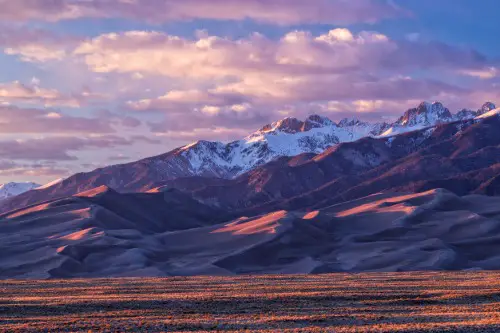
You wouldn’t think a desert of sand dunes at the foot of the Rockies could be this silent, but it’s true—Great Sand Dunes National Park is one of the quietest places in the country. The only sounds you’ll likely hear are the soft whistle of wind moving across the sand and your own footsteps crunching underfoot. When the stars come out, the vast emptiness seems to swallow all sound completely. Standing there feels less like being on Earth and more like stepping into another era entirely.
It’s this eerie stillness that draws sound researchers and solitude-seekers alike. The dunes absorb noise rather than echo it, creating a kind of natural hush that feels almost sacred. Even during the day, the soundscape is so pure you can hear insects skittering across the sand. It’s a reminder that true quiet isn’t just the absence of noise—it’s a presence all its own.
3. Big Bend National Park, Texas
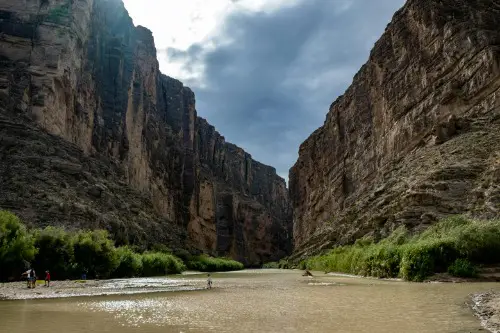
In the far reaches of West Texas, Big Bend is a landscape of canyons, desert plains, and ancient limestone cliffs. The isolation here is complete—you can drive for hours without seeing another car. Step out of your vehicle, and the silence stretches as far as the horizon. Even the Rio Grande seems to flow quietly, as if mindful not to disturb the stillness.
That deep quiet is why Big Bend is recognized as one of the least light- and noise-polluted parks in the country. It’s the kind of silence that humbles you, reminding you how small you really are. Hike into Santa Elena Canyon and you might hear nothing but your heartbeat echoing off the stone walls. It’s no wonder people describe it as a place that slows your pulse.
4. Crater Lake National Park, Oregon
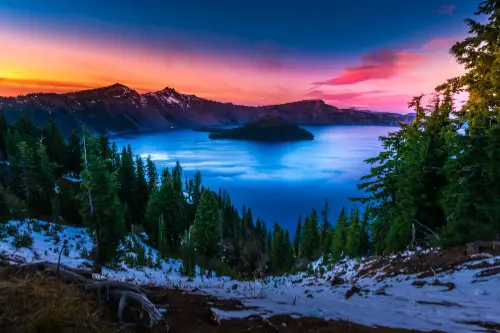
Crater Lake is the deepest lake in the U.S., but it’s the surrounding silence that really takes your breath away. Formed inside an ancient volcanic caldera, the lake sits at over 6,000 feet, far from highways or urban noise. The air feels thin and still, and the water mirrors the sky so perfectly that sound seems to dissolve into the blue. Even the occasional bird call feels like an intrusion.
In winter, when snow blankets the park, the quiet deepens into something almost supernatural. You can walk for miles and hear nothing but the soft creak of packed snow beneath your boots. That silence, layered with the crisp air and endless white, makes it easy to forget what century you’re in. It’s a frozen moment you won’t want to break.
5. Assateague Island, Maryland and Virginia
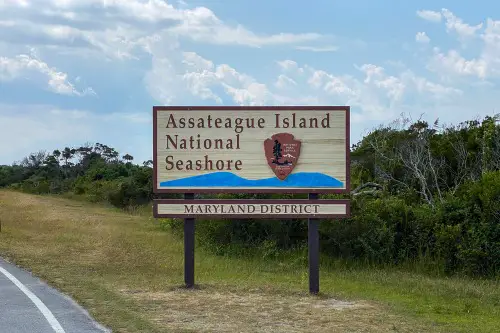
This barrier island is known for its wild horses, but it’s also a sanctuary of peace. Wander beyond the visitor areas, and you’ll find long stretches of untouched beach where the waves whisper more than roar. There are no boardwalks, no neon lights, just dunes, salt marsh, and sea breeze. The rhythm of the ocean and the soft clop of distant hooves are the island’s only soundtrack.
Because development has been kept to a minimum, Assateague feels timeless. You can sit on the sand at sunrise and watch mist roll over the dunes, as if the modern world hasn’t yet arrived. The horses graze unfazed by human presence, moving like ghosts from a forgotten past. It’s as close as you’ll get to hearing what the coast sounded like centuries ago.
6. Muir Woods National Monument, California
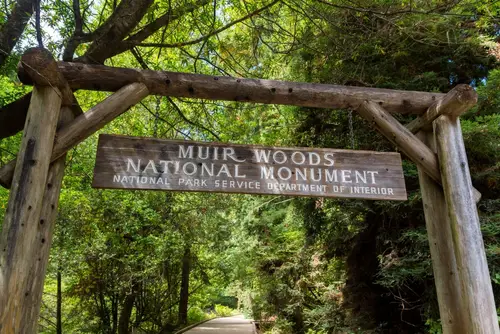
Just outside San Francisco lies a cathedral of redwoods so silent you can hear the drip of fog condensing on leaves. The trees rise hundreds of feet overhead, creating a canopy that muffles everything beneath it. Visitors instinctively lower their voices here—it feels wrong to speak loudly among giants. The stillness has a reverent quality, like entering a living temple.
That hush isn’t just poetic—it’s acoustic. The dense forest absorbs sound waves, creating a natural quiet zone. Even the footsteps of other hikers fade quickly, leaving only birdsong and the faint rustle of ferns. It’s a short drive from one of America’s noisiest cities, yet it feels centuries away.
7. Denali National Park, Alaska
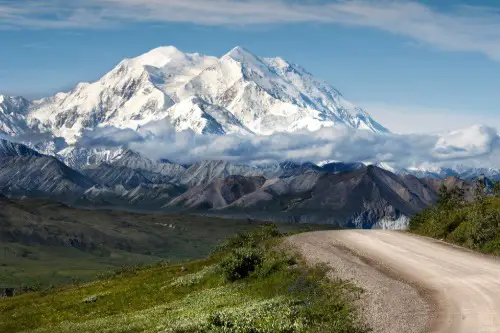
In the heart of Alaska’s wilderness, Denali is vast enough to swallow sound whole. The subarctic air carries little noise, and with no towns or highways nearby, human sounds vanish almost completely. You might hear the crack of ice, the distant call of a wolf, or nothing at all. The scale of the silence matches the immensity of the land.
Denali’s stillness can be startling, almost overwhelming at first. You begin to notice the subtle sounds of your own breath and heartbeat in a way you never do elsewhere. On a clear day, the snowy peak of Mount Denali rises so quietly it feels unreal. It’s a silence that reminds you of Earth before humans.
8. Driftless Area, Wisconsin
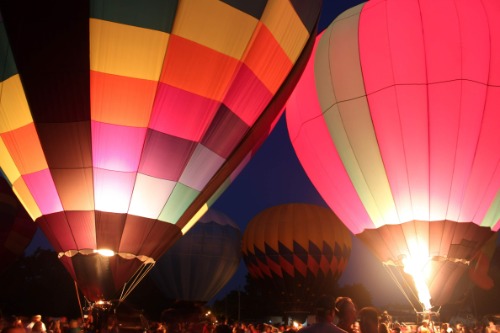
Unlike most of the Midwest, the Driftless Area escaped the flattening of glaciers, leaving behind deep valleys and limestone bluffs. The winding backroads here lead to farms, forests, and rivers that seem frozen in another century. There’s a sleepy, pastoral quiet that wraps around you the moment you arrive. Even the small towns hum at half speed.
Many visitors come to hike or fish, but they stay for the sense of calm that seeps into their bones. The lack of highways and industrial noise makes the air feel heavier with stillness. Sit by the Kickapoo River at dawn and the only sound might be a distant rooster or a fish breaking the surface. It’s the sound of a simpler America, still alive in the corners of Wisconsin.
9. Canyonlands National Park, Utah
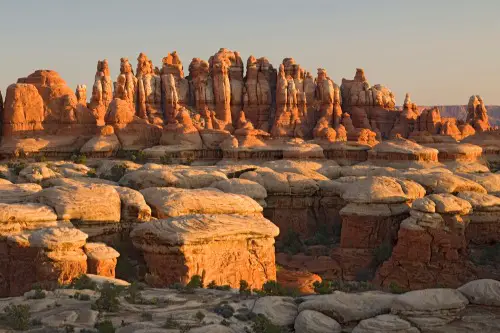
Vast and sunbaked, Canyonlands is where sound seems to disappear into the stone itself. The mesas and buttes stretch endlessly, broken only by shadow and silence. When you stand at the edge of the Island in the Sky, you realize how complete that quiet is—no birds, no breeze, just still air and empty space. It feels ancient, almost lunar.
That silence isn’t just a trick of the landscape; it’s measured. Scientists have recorded some of the lowest ambient sound levels in the lower 48 states right here. Every whisper, every shuffle of your shoe, carries far in the open air. It’s the kind of silence that makes you instinctively speak softer, as though not to disturb the desert itself.
10. Chiricahua National Monument, Arizona
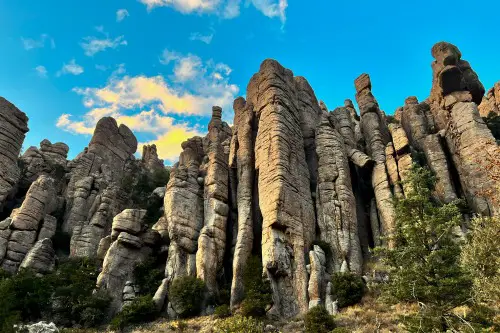
Hidden in southeastern Arizona, Chiricahua is a wonderland of stone pinnacles known as “standing rocks.” But it’s the quiet that feels most striking. The towering formations seem to hold their breath, and the high desert air carries no trace of city life. You can hike for hours and hear only the crunch of gravel under your boots.
This silence is amplified by the park’s isolation—no major highways, no tourist crowds. When the sun sets, the rocks glow pink and gold, and even the birds fall still. The effect is hypnotic, like watching the world pause for a moment. It’s easy to imagine time simply stopped here centuries ago and never quite started up again.
11. Isle Royale National Park, Michigan
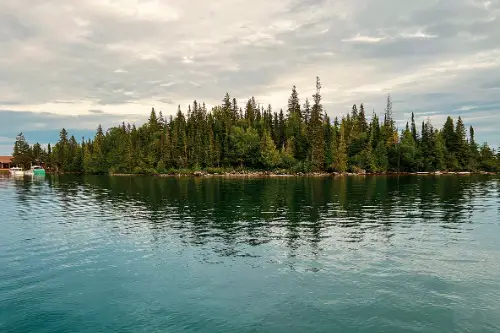
Accessible only by boat or seaplane, Isle Royale sits in the cold waters of Lake Superior. It’s one of the least visited national parks, and that’s part of its charm. There are no cars, few people, and plenty of space for the wind and waves to do the talking. The result is an island wrapped in profound solitude.
At night, the silence deepens so completely that even the lap of water against the shore sounds loud. The park’s wolf and moose populations live undisturbed, adding to the feeling that this is a place untouched by time. You can hike for days and never cross paths with another person. It’s a rare and humbling kind of quiet.
12. Ocracoke Island, North Carolina
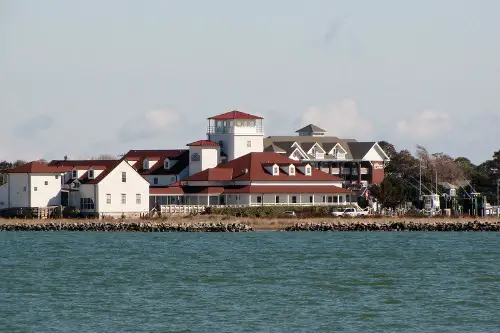
Far down the Outer Banks, Ocracoke Island moves to its own rhythm. It’s reachable only by ferry, which keeps it blissfully free from the noise of mainland tourism. The narrow streets, old cottages, and windswept dunes seem to exist in a gentler timeline. Even the ocean feels calmer here, as if it, too, prefers to whisper.
Locals talk about “Ocracoke time,” a pace that slows everything down. The island’s small size means there’s little mechanical noise—no chain stores, few cars, just gulls and breezes. At night, the only sounds are the creak of boats in the harbor and the sigh of waves on sand. You leave with the sense that modern life forgot this place, and that’s its greatest gift.
13. Boundary Waters Canoe Area Wilderness, Minnesota
Deep in northern Minnesota, the Boundary Waters stretch across more than a million acres of lakes and pine forest. Once you paddle away from the launch point, the sounds of modern life vanish—no motors, no crowds, just the rhythmic dip of your oar and the call of a loon. The stillness feels ancient, as if time itself slows to match the gentle drift of the water. It’s the kind of place where silence feels alive, not empty.
This protected wilderness is one of the last truly remote areas in the continental U.S., and that’s what makes it magical. Nights here are dark and vast, broken only by the flicker of a campfire or the northern lights overhead. You start to realize how noisy daily life really is once you’ve been here for a while. When you finally hear another human voice again, it feels almost shocking.
14. Baxter State Park, Maine
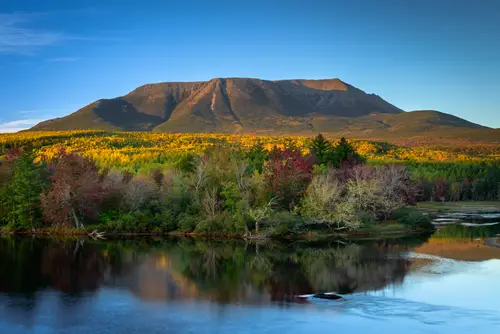
In the northern wilds of Maine, Baxter State Park was designed to stay wild—no paved roads, no electricity, and no cell service. It’s home to Mount Katahdin, the terminus of the Appalachian Trail, but even the mountain seems to keep its voice low. The silence of the forest is thick and steady, broken only by a squirrel or a gust of wind through birch leaves. It’s the kind of quiet that settles into your bones.
Because the park limits visitors and bans noisy recreation, the stillness feels intentional, preserved. The absence of technology makes you acutely aware of natural sounds—a brook, a raven, your own breathing. Hike to a secluded pond at sunrise, and you might find yourself whispering just to match the calm. Baxter doesn’t just offer quiet—it demands you listen to it.
This post 14 Places So Quiet You’d Swear You Stepped Out of Time was first published on American Charm.


